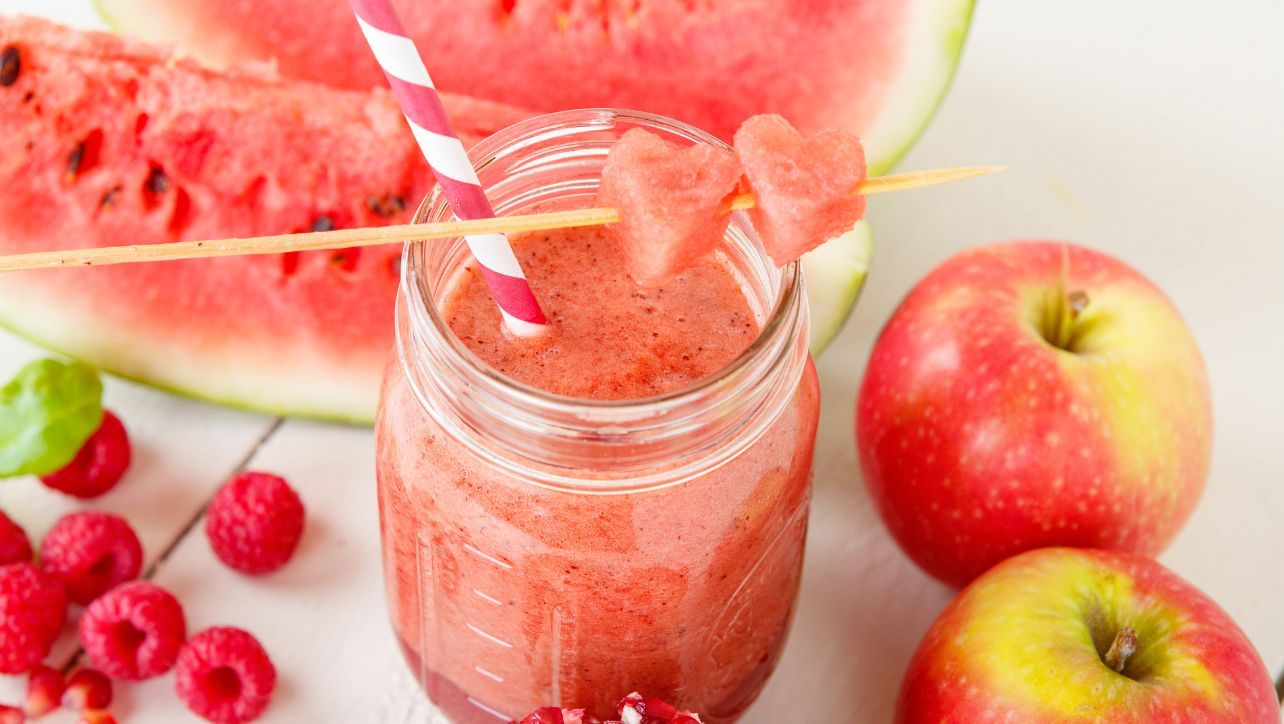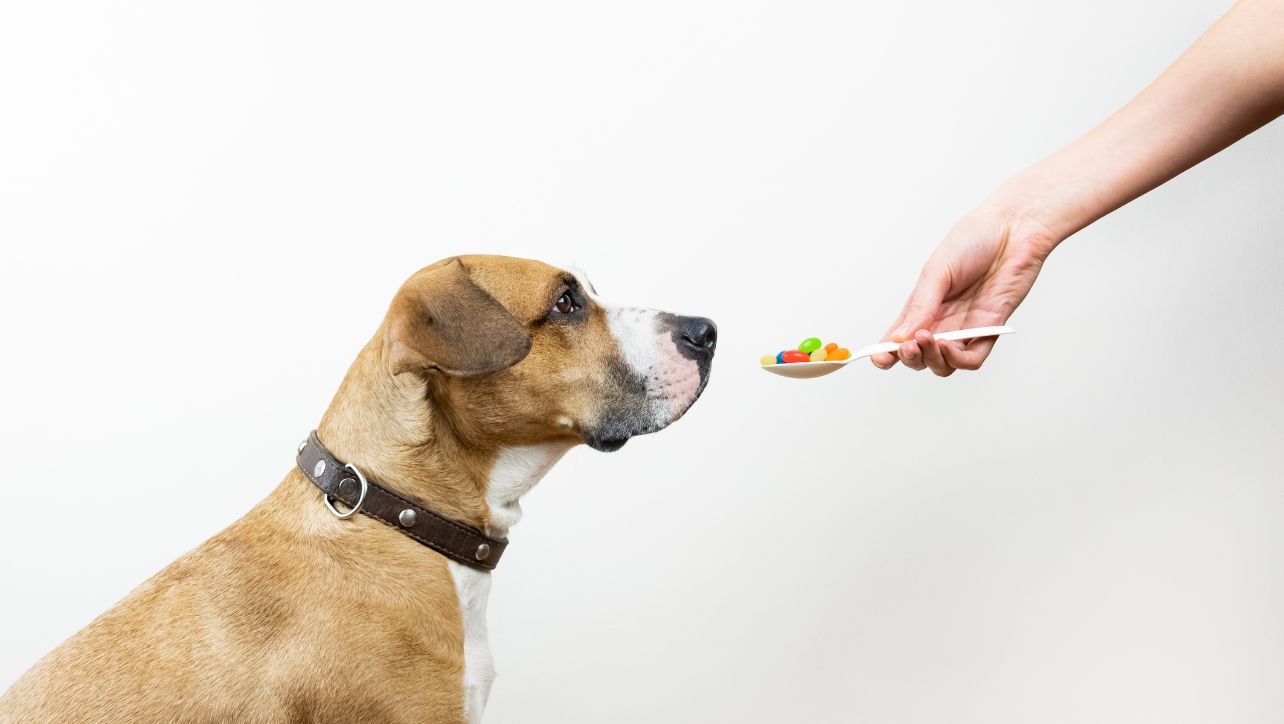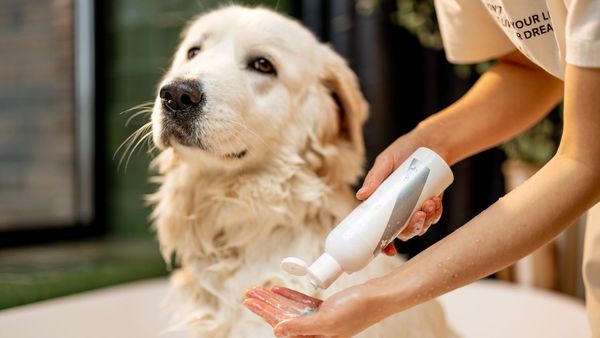Do you ever wonder "what foods are good for dogs?" If you're providing the best possible nutrition for your furry friend?
With a plethora of information available, it can be challenging to determine which foods are beneficial and which should be avoided.
Fear not, dear reader! In this blog post, we'll discuss the top nutritious foods, fruits, grains, legumes, and dairy products for dogs, as well as treats and snacks, foods to avoid, and even homemade dog food recipes.
So, let's embark on this journey to ensure your pup's diet is both delicious and nutritious!
Short Summary
- Add nutrient-rich foods like peanut butter, lean meats, fish and vegetables to your pup's diet for optimal health.
- Be aware of the treats & snacks that should be given in moderation, as well as those to avoid completely.
- Consider making homemade dog food recipes with guidance from a vet for dietary restrictions.
Top 13 Nutritious Foods for Dogs

A well-rounded diet is essential for your dog's overall health and well-being. Incorporating a variety of human foods into their meals can provide additional vitamins, minerals, and proteins that may not be found in traditional dog foods.
Some of the healthiest human foods for dogs include peanut butter, lean meats, fish, eggs, and vegetables.
Each of these foods offers unique benefits that contribute to your pup's overall health, from improving their skin and coat to boosting their immune system.
Let's take a closer look at each of these nutritious options.
Peanut Butter
Peanut butter is a beloved treat for many dogs, and it's not just because of its delicious taste. Packed with protein, healthy fats, niacin, vitamin B, and vitamin E, peanut butter provides numerous health benefits for your pup.
However, it's essential to give your dog plain, unsalted peanut butter in moderation to avoid weight gain and potential health issues. Be cautious of the ingredients in the peanut butter, as salt and artificial sweeteners like xylitol can be harmful to dogs.
Click here for an in-depth article all about the Best Peanut Butter For Dogs.
So when it comes to treating your furry friend, a little bit of unsalted peanut butter can be a healthy and safe treat as long as it's given responsibly.
Lean Meats
Lean meats, such as chicken, turkey, and beef, are excellent sources of protein, essential amino acids, and essential fatty acids for your dog. They also provide essential vitamins and minerals like iron, zinc, and B vitamins.
However, it's crucial to serve lean meat properly to ensure your dog's safety. Avoid feeding your dog raw chicken or processed meats like bacon, sausage, or deli meat.
Instead, opt for cooked, unseasoned, lean meats without any sauces, marinades, or added salt.
By incorporating lean meats into your pup's meal plan, you can provide them with the nutrients they need to stay healthy and strong.
Fish
Fish is another fantastic source of nutrition for your dog. Rich in protein, omega-3 fatty acids, and essential vitamins and minerals, fish can help improve your dog's skin, coat, joint, and heart health.
Salmon, in particular, is an excellent choice due to its low-fat content and high levels of omega-3 fatty acids. Other safe fish options for your pup include plain canned tuna, anchovies, and sardines.
It's essential to serve fish without any bones and limit your dog's fish intake to no more than twice a week.
By doing so, you can provide your dog with the many health benefits of fish without any risks.
Eggs
Eggs are a healthy and nutrient-rich addition to your dog's diet. They contain protein, essential fatty acids, and vitamins A, D, and B12, which can help improve your dog's skin and coat health.
However, it's essential to avoid feeding raw chicken or eggs to your dog due to the risk of Salmonella.
Instead, cook the eggs before serving them to your pup to ensure their safety.
By including eggs in their diet, you can provide your pooch with a nutritious and delicious treat that supports their overall well-being.
Vegetables
Vegetables like carrots, celery, sweet potatoes, and cucumbers are not only safe for dogs to et, but also provide essential nutrients and health benefits.
Carrots, for example, are rich in vitamins A and fiber, which can boost your dog's immune system, improve eye health, and support their digestive system.
Similarly, celery is low in calories and contains various vitamins and minerals, making it a healthy snack for your pup.
When feeding vegetables to your dog, make sure to serve them in moderation and avoid any potential choking hazards by cutting them into small pieces.
In doing so, you can offer your dog a tasty and nutritious treat that supports their overall health.
Fruits That Benefit Your Dog's Health

In addition to the nutritious foods mentioned above, certain fruits can also benefit your dog's health.
Apples, berries, and watermelon are full of antioxidants and essential nutrients that can support your dog's overall well-being. These fruits can be given to dogs as a healthy training treat fresh food, or snack.
However, it's crucial to monitor your dog's fruit intake and ensure they are consuming fruits that are safe for them. Let's delve into the benefits of these fruits and how to serve them to your pup.
Apples
Apples are a fantastic treat for dogs, offering numerous health benefits. They are packed with vitamins A, C, and K, calcium, and phosphorus, which support your dog's overall health and well-being.
When serving apples to your dog, be sure to remove the seeds, as they can be harmful if ingested.
By incorporating apples into your pup's diet, you can provide them with a delicious and nutritious treat that supports their overall health.
Berries
Berries, such as blueberries, strawberries, raspberries, and blackberries, are an excellent treat for dogs due to their high antioxidant content. Antioxidants can help protect your dog's cells from damage and support their overall health.
However, it's essential to avoid toxic berries such as grapes and raisins, which can cause serious health issues for your pup.
By offering your dog safe and nutritious berries, you can provide them with a tasty and health-promoting treat.
Watermelon
Watermelon is not only a refreshing treat for your dog, but also offers various health benefits. It contains essential nutrients, such as antioxidants, amino acids, vitamins A and vitamin C, B vitamins, potassium, magnesium, and fiber.
When serving watermelon to your dog, always remove the rind and seeds to prevent any potential choking hazards or intestinal blockages.
By incorporating watermelon into your dog's meal plan, you can provide them with a hydrating and nutritious treat that supports their overall health.
Healthy Grains and Legumes

Grains and legumes can also be beneficial for your dog's health. Oatmeal, quinoa, and green peas are healthy options that provide essential vitamins, minerals, oils, and fiber for your pup. These foods can support various aspects of your dog's health, from digestion to immune system function.
Let's explore the benefits of these grains and legumes in more detail.
Oatmeal
Oatmeal is a nutritious and easily digestible grain that can benefit your dog's health. It is an excellent source of fiber, which can help support your dog's digestive system.
Additionally, oatmeal contains vitamins, minerals, and dietary fiber that support your dog's overall health.
When serving oatmeal to your dog, make sure to offer plain, unsweetened oatmeal without any added salt or sugar.
By incorporating oatmeal into your dog's feedings, you can provide them with a nutritious and easily digestible grain that supports their well-being.
Quinoa
Quinoa is another healthy grain option for your dog. It is packed with essential nutrients, vitamins, protein, calcium, and fiber, making it a highly nutritious choice for your pup.
When introducing quinoa to your dog, it is essential to do so gradually and in limited quantities to avoid any potential gastrointestinal upset.
By including quinoa in your dog's food, you can provide them with a nutrient-rich grain that supports their overall health.
Green Peas
Green peas are a type of legume that can offer numerous health benefits for your dog. They are packed with essential vitamins, minerals, and dietary fiber, which can support various aspects of your dog's health.
When serving green peas to your dog, make sure to do so in moderation and avoid any potential gastrointestinal issues, such as flatulence and bloat.
By incorporating green peas into your dog's meals, you can provide them with a tasty and nutritious treat that supports their overall well-being.
Dairy Products: The Good and the Bad

Dairy products, such as yogurt and cheese, can be beneficial for your dog's health when provided in moderation. They are packed with protein, calcium, and essential fatty acids that support your dog's overall health.
However, it is essential to monitor your dog's dairy consumption, as some dogs may be lactose intolerant and experience digestive issues.
Let's take a closer look at the benefits and considerations of yogurt and cheese for dogs.
Yogurt
Yogurt is a healthy snack for dogs when provided in moderation. It is packed with protein, calcium, and digestive cultures that can support your dog's gut health and overall well-being.
When serving yogurt to your dog, make sure to offer plain yogurt without any added sugar or artificial sweeteners.
Greek yogurt is an excellent choice, as it typically contains less lactose than regular yogurt.
By including yogurt in your dog's feedings, you can provide them with a nutritious and gut-friendly treat that supports their overall health.
Cheese
Cheese can be a protein and calcium-rich treat for dogs when provided in small quantities.
However, it is essential to monitor your dog's cheese consumption, as some dogs may be lactose intolerant and experience digestive issues when consuming dairy products.
When serving cheese to your dog, opt for low or reduced-fat varieties to avoid excessive fat intake.
By incorporating cheese into your dog's meals in moderation, you can provide them with a tasty and nutritious treat that supports their overall health.
Treats and Snacks: Moderation is Key

While treats and snacks can provide additional health benefits for your dog, it is essential to offer them in moderation to avoid weight gain and potential health issues.
Processed treats, in particular, should be avoided due to their high-fat content and potential for causing digestive issues.
By providing your dog with healthy, natural treats and snacks, you can support their overall health while avoiding potential health risks associated with overfeeding and processed treats.
Foods to Avoid

Certain human foods can be harmful or even toxic to dogs, so it is essential to be aware of which human foods dogs have to avoid.
Some of the most dangerous human foods for dogs include chocolate, grapes, raisins, macadamia nuts, onions, garlic, and alcohol.
These foods can cause a range of health issues, from digestive problems to severe organ damage or even death.
By being aware of these potential dangers with certain human foods, you can ensure your dog's diet remains safe, healthy, and nutritionally balanced.
What Food Should Dogs Eat Daily?
Dogs require a balanced and nutritious diet to maintain their overall health and well-being. The specific daily food requirements for dogs may vary depending on factors such as age, breed, size, activity level, and any existing health conditions.
However, a general guideline for a healthy dog's daily diet includes:
High-quality protein:
Protein is essential for building and maintaining muscles, skin, coat, and other tissues. Sources include chicken, turkey, beef, lamb, fish, and eggs.
Carbohydrates:
Carbs provide energy and help with digestion. Opt for complex carbohydrates like whole grains (brown rice, barley, oats), sweet potatoes, and legumes.
Healthy fats:
Fats are vital for brain function, skin and coat health, and energy. Look for sources such as fish oil, flaxseed oil, and animal fats.
Vitamins and minerals:
These micronutrients support various bodily functions, including immune system health and metabolism. Fruits, vegetables, and fortified dog foods are rich in vitamins and minerals.
Water:
Fresh, clean water should always be available for your dog to prevent dehydration and maintain proper body functions.
It's often recommended to feed your dog a high-quality commercial dog food that meets the nutritional guidelines established by the Association of American Feed Control Officials (AAFCO).
If you prefer to prepare homemade meals for your dog or if they have specific dietary needs, consult with a veterinarian or a canine nutritionist to ensure a balanced and complete diet.
Always monitor your dog's weight and adjust food portions accordingly to maintain a healthy body condition.
Regular check-ups with your vet can help you identify any dietary adjustments needed to keep your dog in optimal health.
Homemade Dog Food Recipes

Creating homemade dog food recipes can be a great way to ensure your dog's nutritional needs are met while also tailoring their diet to their specific preferences and requirements.
By using a variety of ingredients like lean meats, vegetables, and grains, you can create nutritious and delicious meals for your pup that support their overall health.
Click here for a list of the 50 Best Homemade Dog Food Recipes.
When preparing homemade dog food, always consult with your veterinarian to ensure that your dog's dietary needs are being met and that the recipes are appropriate for your dog's specific health conditions or dietary restrictions.
How to Introduce New Foods to Your Dog's Diet

When introducing new foods to your dog's meals, it is essential to do so gradually to avoid any potential digestive issues.
Start by incorporating small amounts of the new food into your dog's regular meals, gradually increasing the new food's proportion while decreasing the old food.
This process should take place over 5-7 days to allow your dog's stomach and digestive system to adjust to the new food.
Additionally, monitor your dog for any signs of allergies or digestive issues during this transition period, and consult with your veterinarian if any concerns arise.
Frequently Asked Questions
What food is healthiest for my dog?
For the healthiest food for your dog, look for food containing meat, vegetables, grains, and fruits. These foods provide essential vitamins, minerals, and fiber, and can help promote healing and overall wellbeing in your pet.
It's important to read the labels on pet food to make sure you're getting the best nutrition for your pet. Look for foods that are high in protein, low in fat, and free of artificial ingredients.
What can I feed my dog instead of dog food?
You can give your dog a delicious and nutritious meal by substituting their regular kibble for these human-friendly options! Bananas, blueberries, broccoli, carrots, cooked lean meat, onions-free gravy, plain boiled rice and unprocessed oatmeal are all good food items to feed your furry friend.
Summary
In conclusion, providing your dog with a nutritious and varied diet is essential for their overall health and well-being.
By incorporating a range of healthy foods, including lean meats, fish, eggs, vegetables, fruits, grains, legumes, and dairy products, you can support your dog's immune system, digestive health, and overall vitality.
Always consult with your veterinarian when making changes to your dog's diet or introducing new foods, and remember that moderation is key to ensuring your dog remains healthy and happy.
With the right balance of nutrients and a focus on quality ingredients, you can give your furry friend the best possible foundation for a long, healthy life.
And as always, get out there and Love Life!







